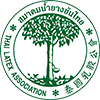Malaysia leads ASEAN trade ministers in discussions to address President Trumpís import tariff policy, affirming no retaliatory measures will be taken. The meeting concluded with an 8-point joint statement and the establishment of a special task force ó the ASEAN Geoeconomics Task Force. Commerce Minister Pichai Naripthaphan joined a special ASEAN Economic Ministers Meeting via teleconference at 8.30am from the Ministry of Commerce, alongside economic ministers from all 10 ASEAN member states and Timor-Leste.
The meeting was chaired by Malaysiaís Minister of Investment, Trade, and Industry, Tengku Zafrul bin Tengku Abdul Aziz. It aimed to develop a strategic ASEAN response to the new US policy imposing reciprocal tariffs on various countries worldwide. The discussion focused on minimizing the impact on regional trade, investment, and the economy, as well as on the global supply chain and private sector activitiesóespecially those involving SMEs and farmers. The meeting lasted more than two hours.
Following the meeting, Pichai stated that during the discussions among ASEAN trade ministers, concerns were raised regarding the US's reciprocal tariff policy, which could negatively affect the longstanding trade relations between ASEAN and the United States.
In response, ASEAN reaffirmed its collective stance as a ďComprehensive Strategic PartnerĒ with the US and proposed constructive dialogue under the ASEAN-US Trade and Investment Framework Agreement (TIFA) and the Expanded Economic Engagement (E3) Workplan. The goal is to preserve economic, trade, and investment ties, as well as regional supply chain resilience.
ASEAN also aims to deepen cooperation in high-potential sectors such as digital technology, AI, food, renewable energy, advanced industries, electric vehicles, semiconductors, healthcare, logistics, and agriculture to create new opportunities for the region.
ďASEAN members agreed that the bloc will not respond to the US tariffs with retaliatory measures, as we understand the rationale behind the tariff hikes. Instead, we will seek mutual cooperation and adopt a dual-track negotiation approachóbilateral talks at the country level and collective negotiations as ASEANóto enhance our bargaining power with the US,Ē Pichai said.
The meeting resulted in a joint statement comprising eight key points outlining ASEANís stance on former President Trumpís policy. These include: emphasizing cooperation between ASEAN and the US; expressing ASEANís concern over the USís reciprocal tariff measures; supporting multilateral negotiations; committing to engage in dialogue with the US; prioritizing the protection of ASEANís interests; affirming ASEANís readiness to work with the US to drive economic growth; establishing the ASEAN Geoeconomics Task Force to monitor, assess, and propose policies to respond to and capitalize on US economic strategies for maximum benefit to ASEAN; and promoting public-private collaboration.
As for Trumpís decision to delay the implementation of reciprocal tariffs on countries with trade surpluses with the US by 90 days, this postponement allows all countries time to prepare and negotiate with the US.
Pichai stated that, in Thailandís case, he had already been in contact with Jamieson Greer, US Trade Representative (USTR), since December last year regarding this matter.
The USTR has since agreed to engage in discussions with Thailand, expected to take place within this month, with both sides currently coordinating the meeting date. He confirmed that the issues Thailand plans to bring to the table align with what the US is seeking, based on the five measures previously announced by the Thai governmentóthough he noted that specific details cannot yet be disclosed.
The United States is ASEANís second-largest trading partner after China, with a total trade value in 2024 estimated at approximately US$476.8 billion.
ASEANís top five exports to the US include rubber and rubber products, footwear, garments and apparel accessories, electronic products, and machinery. Meanwhile, ASEANís top five imports from the US are machinery and electrical equipment, apparel, machinery (general), agricultural raw materials and products, and vehicles, parts, and engines.
For Thailand, the US is its number one export market. In 2024, Thailandís total trade with the US amounted to US$74.484 billion, with exports to the US valued at US$54.956 billion and imports at US$19.528 billionóresulting in a trade surplus of over US$35.427 billion.
Source : The Nation |








